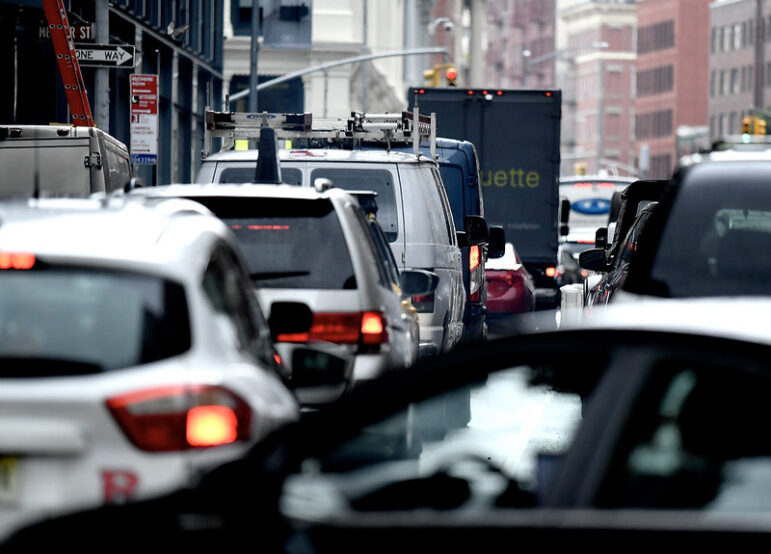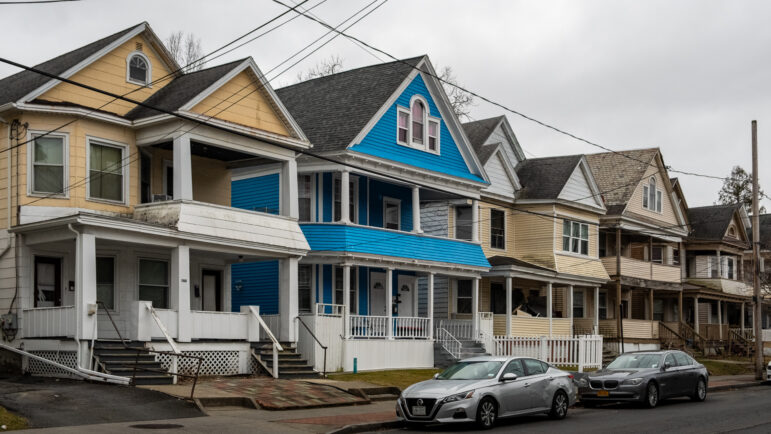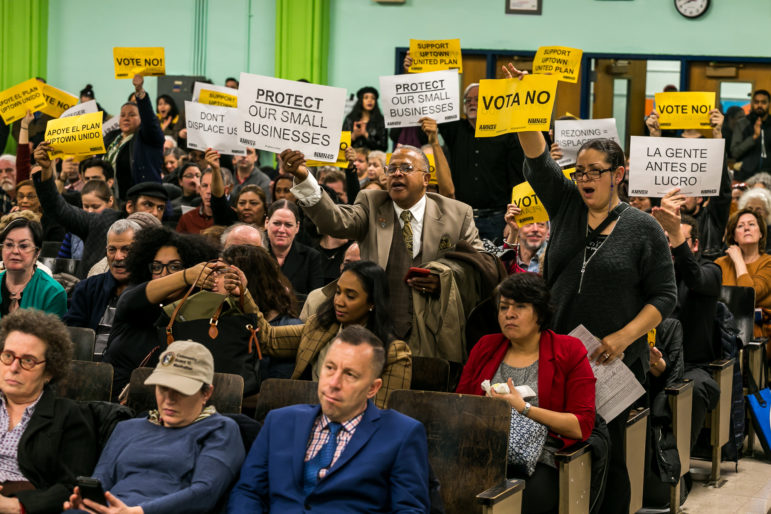Skilled elevator mechanic Dennis Maloney reported to work March 17 at Kennedy Airport just as he had every day for the past seven years. He went to the office trailer to get an assignment, but the supervisor had some shocking news: There was no work. Maloney’s employer, Schindler Elevator, along with Kone and Otis elevator companies, had locked out around 1,200 International Union of Elevator Constructors (IUEC) Local 1 members at worksites in New York, Westchester, and Long Island.
“We were willing to work without a contract,” said Dennis Maloney, who is also a shop steward. But when the supervisor told the mechanics they were locked out, they reluctantly agreed, said Maloney.
Unlike a strike, a lockout is called by an employer trying to oust a union. Though it is illegal for management to do it themselves, they can hire replacement workers and encourage them to circulate a petition to remove the union.
Locked out workers at the March 31 rally outside of Mount Sinai Hospital said they were shocked the companies took such an extreme position. “We never saw this coming,” said Guy Cerbone, an Otis mechanic. According to union officials, the local has negotiated temporary contracts with 45 other elevator companies covering wage increases, health insurance, hours and outsourcing among other issues. Schindler, Kone and Otis are holdouts.
The Elevator Manufacturers Association of New York (EMANY), the bargaining representative for the three companies, claims it had no choice but to lock workers out. “Local 1 members were already engaged in strike activity by refusing to show up for work or to comply with requests from company managers who were trying to implement contingency plans in the event that Local 1 called a strike,” said EMANY in an online statement. “Therefore, Local 1 employees are locked out and will not be allowed to return to work until a new agreement is reached.”
The union maintains it has bargained in good faith. “The companies began collecting company vans and tools two days before the lock out occurred,” said Local 1 business agent and vice president Fred McCourt. “Local 1 had no intentions of striking.”
Union leaders claim that unskilled replacement workers are doing a dangerous job that takes five years of training, thus putting the public at risk. “They have clerks, stock boys, truck drivers and porters—people from around the country doing the work,” said McCourt.
EMANY denies using unskilled labor. Schindler spokesperson Kathy Rucki said many of the replacement workers are engineers with the companies.
While workers are committed to the union, some say it was ill prepared for the lock out. There was no strike fund in place, and little public outreach. “I’m going to start dipping into my savings and maybe get some [work] on the side,” said Otis mechanic Tony DiDonna. On average, mechanics earn between $32 and $40 an hour.
Local 1 has been hampered by labor racketeering in recent years. Last year, vice president Charles Novak was convicted of earning millions of dollars by racking up hundreds of hours of “no show” work, where workers are on the clock but not working, and doling out similar jobs. Twenty-six members have been indicted since 2002 in the no-show job racket that took in an estimated $6 million.
Now under new leadership, Local 1 has reached out to other building trades for support. It is also actively trying to steer the three corporations’ contracts to union companies, though thus far Shea Stadium is the only large group to transfer.
“You can’t win a union struggle today on the picket line,” said Cornell University labor expert Kate Bronfenbrenner. “You have to take it to where it costs the employer.”








